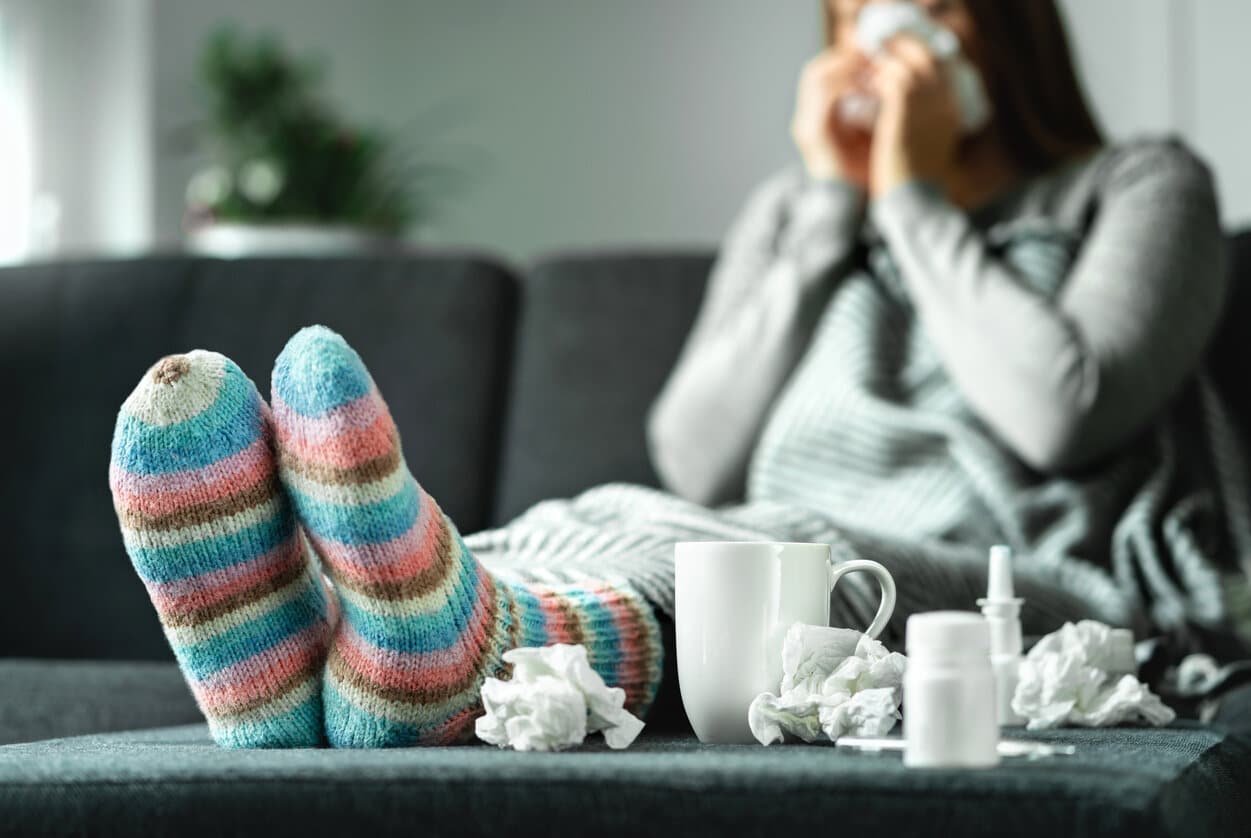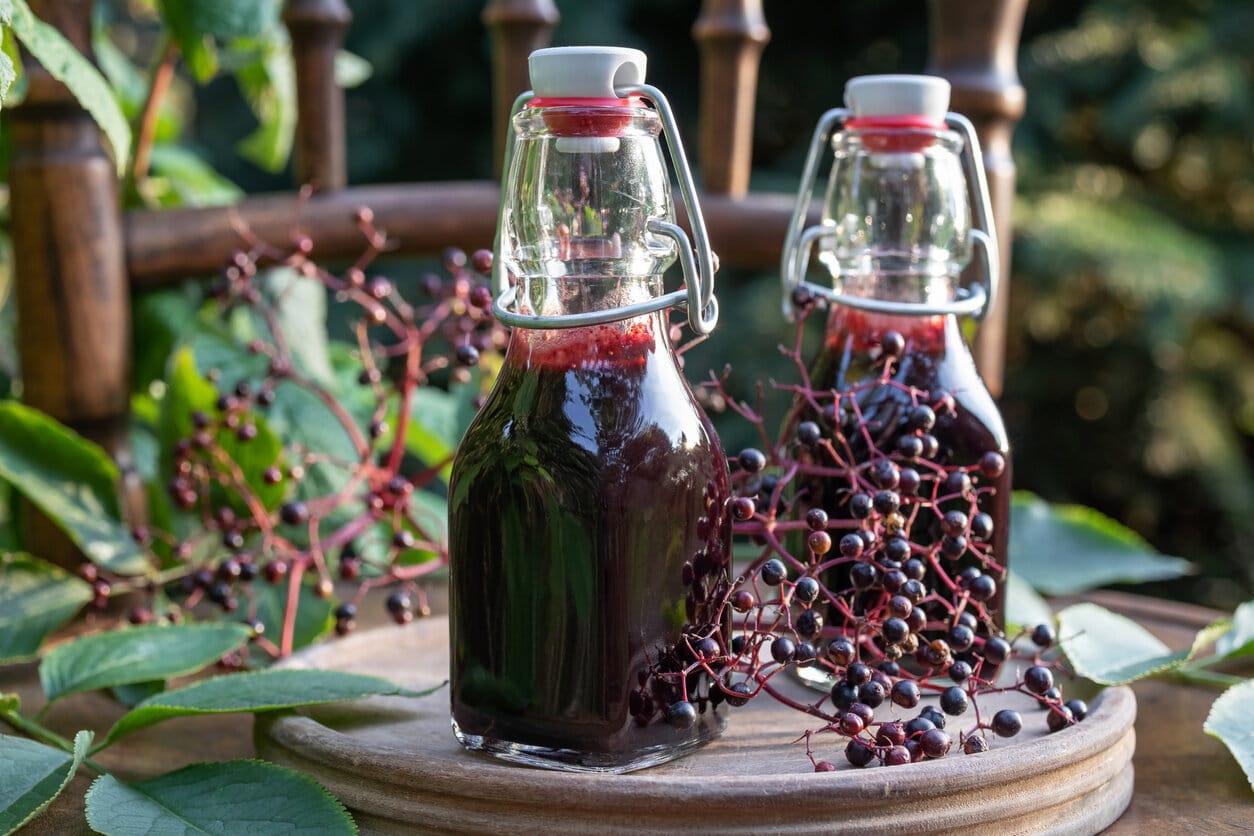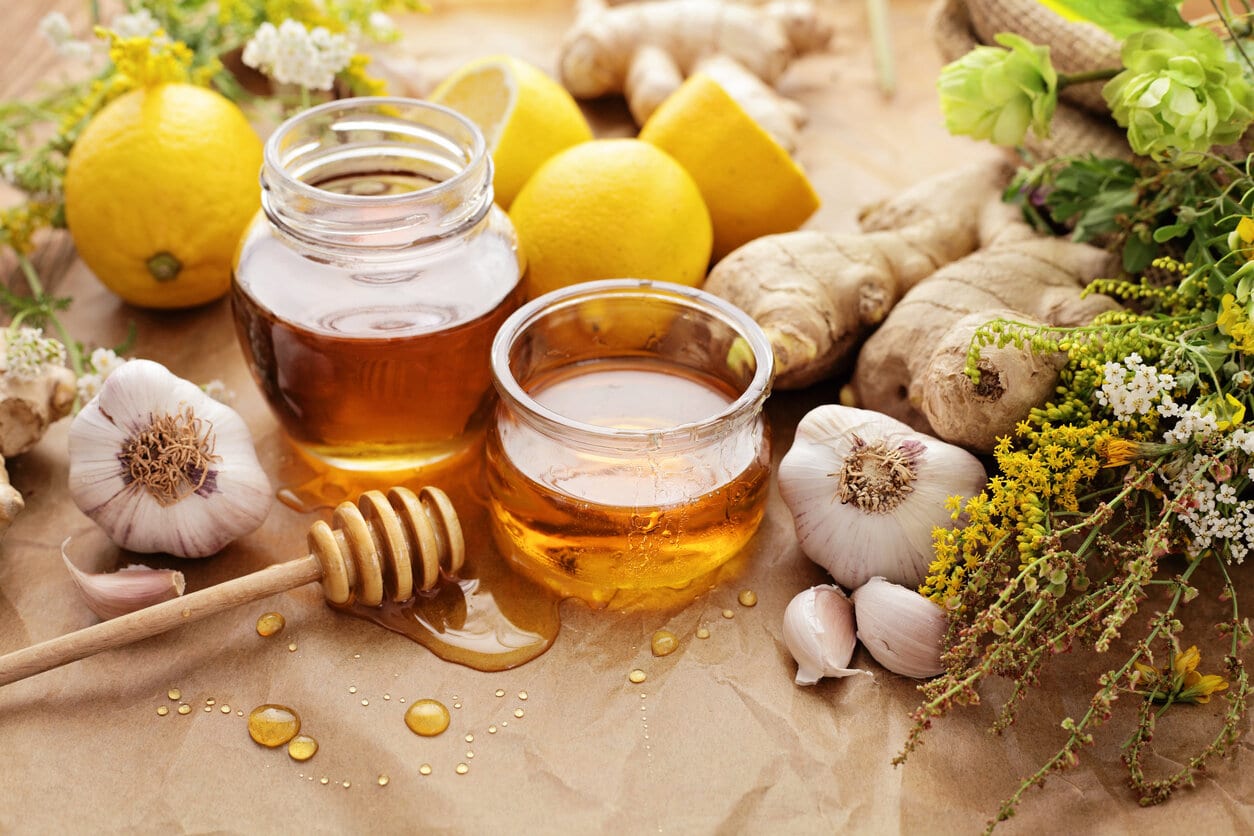
All of the information provided in this article is for information purposes only. The information here should never be taken as medical advice. Please consult with a qualified healthcare provider before starting, changing, or stopping any supplements. If you are concerned about the flu, please see your doctor.
My biggest advice to everyone is to stop worrying because worry never was a very effective anti-viral tool.
However, there are some basic things you can do, in a calm and peaceful manner, to boost your immune function.
Even if you are not worried at all, most of these strategies we should be doing anyway!
The following are the top lifestyle strategies you can do to boost your immune system for free:
- Get enough sleep every single night: Give yourself 9 hours of sleep opportunity just in case you wake up in the night or take a while to fall asleep. Poor sleep results in increased inflammation and DECREASED ANTI-VIRAL ACTIVITY (1). Sleep is anti-viral intervention NUMERO UNO!!
- Practice diligent stress-management: 10-15 minutes of meditation twice a day would be great. If you can’t do that, try 5 minutes. In addition, try to take 10 deep breaths, 3 or more times a day to calm down your nervous system. This is an easy and active way to de-stress that takes very little time and is immediately effective.
- Avoid excessive exercise and take it easy if you feel weak or tired (even if you don’t feel sick).
- Limit the intake of alcohol and sugar.

Nutrition strategies to boost your immune system:
- Vitamin D: Update: December 24, 2021: There has been extensive research indicating that Vitamin D is very effective at improving outcomes for Covid.
Some findings include:
- “Conclusions: Vitamin D treatment shortened hospital stay and decreased mortality in COVID-19 cases, even in the existence of comorbidities. Vitamin D supplementation is effective on various target parameters; therefore, it is essential for COVID-19 treatment.” (2)
- Conclusion: A 5000 IU daily oral vitamin D3 supplementation for 2 weeks reduces the time to recovery for cough and gustatory sensory loss among patients with sub-optimal vitamin D status and mild to moderate COVID-19 symptoms. The use of 5000 IU vitamin D3 as an adjuvant therapy for COVID-19 patients with suboptimal vitamin D status, even for a short duration, is recommended. (3)
- Conclusions: Severe vitamin D deficiency was associated with increased risk of COVID-19 severity and fatal outcome. The threshold for 25(OH)D level associated with increased risk of severe course was 11.7 ng/mL. Approximately the same 25(OH)D level, 10.9 ng/mL, was associated with increased risk of mortality. Thus, most COVID-19 patients have vitamin D deficiency; severe vitamin D deficiency is associated with increased risk of COVID-19 severity and fatal outcome. (4)
- Conclusions: The datasets provide strong evidence that low D3 is a predictor rather than just a side effect of the infection. Despite ongoing vaccinations, we recommend raising serum 25(OH)D levels to above 50 ng/mL to prevent or mitigate new outbreaks due to escape mutations or decreasing antibody activity. (5)
- If you are not currently taking vitamin D, start taking some.
- Vitamin D is toxic if you take too much, but you really have to overdo it for quite some time for that to happen.
- I recommend 5,000 IU/day for the next few months, but only if you haven’t been taking it.
- The best course of action is to get your blood levels tested and see if you have enough. Based on current research as of 12/24/2021, you should aim for blood levels of 50-60 for maximum immune protection.
- Do not take any new supplements without checking in with your healthcare provider first.
- Good food sources of vitamin D include salmon, fatty fish, egg yolks, cheese (if tolerable), mushrooms
- “Conclusions: Vitamin D treatment shortened hospital stay and decreased mortality in COVID-19 cases, even in the existence of comorbidities. Vitamin D supplementation is effective on various target parameters; therefore, it is essential for COVID-19 treatment.” (2)
- Vitamin A (retinyl palmitate form NOT beta carotene):
- If you are not currently taking vitamin A, start taking some.
- Vitamin A is toxic if you take too much so be cautious.
- I recommend 5,000 IU/day for the next month, but only if you haven’t been taking it.
- The best course of action is to get your blood levels tested and see if you have enough.
- Do not take any new supplements without checking in with your healthcare provider first.
- Good food sources of vitamin A include liver, cod liver oil, mackerel, salmon; and beta-carotene: sweet potato, winter squash, kale, collards, carrots.
- Zinc:
- Zinc MAY reduce the incidence or severity of the common cold.
- IF you are already sick, based on the study I recommend 9-15 mg zinc lozenges, to be taken every 2 hours while you are awake.
- If you want to use the zinc for prevention you may want to take a capsule (zinc does not taste good!)
- Do not take any new supplements without checking in with your healthcare provider first.
- Good food sources of zinc include seafood (oysters are super rich in zinc), pumpkin seed, sea vegetables, and beans, lentils and legumes.
- Garlic:
- There is limited evidence showing garlic supplementation may reduce the severity of the common cold, but the evidence is mixed.
- Supplementation with garlic can cause body odor and bad breath.
- Garlic and other alliums (onions, leeks, etc) do have anti-viral activity. I recommend using a good amount of these foods in your daily cooking
- Honey & Bee Propolis:
- Honey has been shown to have anti-viral properties.
- There is some evidence that bee propolis may be helpful in treating the common cold and upper respiratory infections.
- The honey has to be raw to maintain it’s anti-viral properties so make sure you get raw honey and do not heat it.
- Vitamin C:
- Taken in high amounts (2 grams per day or more) Vitamin C can potentially reduce the severity of the common cold.
- Vitamin C has not been shown to be effective in preventing the common cold or the flu
- In your daily life if you are eating fresh berries and veggies you probably do not need an extra supplement.
- If you want to supplement with Vitamin C I recommend food-based products. I like this one in particular: Pure Radiance C
- If you start to feel under the weather, you can increase to 1,000 mg, 2-3 times/day. BUT
- Those days can have the side-effect of loose stools or diarrhea in some people, SO USE CAUTION!
- Good food sources of vitamin C include oranges, papayas, strawberries, kiwi, organic leafy green vegetables (spinach, bok choy, kale), broccoli, and bell peppers
- Andrographis
- Andrographis is a botanical that has been shown to reduce the severity of the common cold, but not the flu.
- The product that was studied had both andrographis and eleuthero.
- It needs to be taken within 72 hours of the start of the cold.
- The product studied is Kan Jang by the Swedish Herbal Institute.
If you are looking for some great immunity-boosting recipes sign up to receive one delicious and easy-to-prepare immunity-boosting recipe per day for 7 days.

In Summary
There is no simple, easy answer to boosting immune function.
The lifestyle strategies listed in the first section above are probably way more powerful than taking a bunch of fancy herbs (and infinitely less expensive).
After that, making sure you have adequate levels of vitamins A and D and the mineral zinc are probably the most powerful dietary interventions you can do to boost your immune function. Vitamin C-rich foods are a good idea as well.
And this is purely anecdotal but I have found that drinking fresh veggie juice with berries and raw honey daily has boosted my immune function a lot. But even with that, if my vitamin A or D levels are low, I will get sick.
There is also some evidence that taking a probiotic can help boost immune function. I tend to steer most healthy people to eat fresh food, fiber, and fermented foods rather than taking an expensive probiotic that may or may not work.
So, there you have it folks. It’s not rocket science but it’s also not so easy right?
I have found that with true health, it usually does come down to the basics every time.
Take care of your mind, get good sleep and rest, eat nutritious, whole foods, and relax. (and it’s probably a good idea to take a good multi on an ongoing basis).
If you thought this article was helpful please share with your friends.

References
Gönen MS, Alaylıoğlu M, Durcan E, Özdemir Y, Şahin S, Konukoğlu D, Nohut OK, Ürkmez S, Küçükece B, Balkan İİ, Kara HV, Börekçi Ş, Özkaya H, Kutlubay Z, Dikmen Y, Keskindemirci Y, Karras SN, Annweiler C, Gezen-Ak D, Dursun E. Rapid and Effective Vitamin D Supplementation May Present Better Clinical Outcomes in COVID-19 (SARS-CoV-2) Patients by Altering Serum INOS1, IL1B, IFNg, Cathelicidin-LL37, and ICAM1. Nutrients. 2021 Nov 12;13(11):4047. doi: 10.3390/nu13114047. PMID: 34836309; PMCID: PMC8618389.
Sabico S, Enani MA, Sheshah E, Aljohani NJ, Aldisi DA, Alotaibi NH, Alshingetti N, Alomar SY, Alnaami AM, Amer OE, Hussain SD, Al-Daghri NM. Effects of a 2-Week 5000 IU versus 1000 IU Vitamin D3 Supplementation on Recovery of Symptoms in Patients with Mild to Moderate Covid-19: A Randomized Clinical Trial. Nutrients. 2021 Jun 24;13(7):2170. doi: 10.3390/nu13072170. PMID: 34202578; PMCID: PMC8308273.
Karonova TL, Andreeva AT, Golovatuk KA, Bykova ES, Simanenkova AV, Vashukova MA, Grant WB, Shlyakhto EV. Low 25(OH)D Level Is Associated with Severe Course and Poor Prognosis in COVID-19. Nutrients. 2021 Aug 29;13(9):3021. doi: 10.3390/nu13093021. PMID: 34578898; PMCID: PMC8468115.
Borsche L, Glauner B, von Mendel J. COVID-19 Mortality Risk Correlates Inversely with Vitamin D3 Status, and a Mortality Rate Close to Zero Could Theoretically Be Achieved at 50 ng/mL 25(OH)D3: Results of a Systematic Review and Meta-Analysis. Nutrients. 2021;13(10):3596. Published 2021 Oct 14. doi:10.3390/nu13103596
